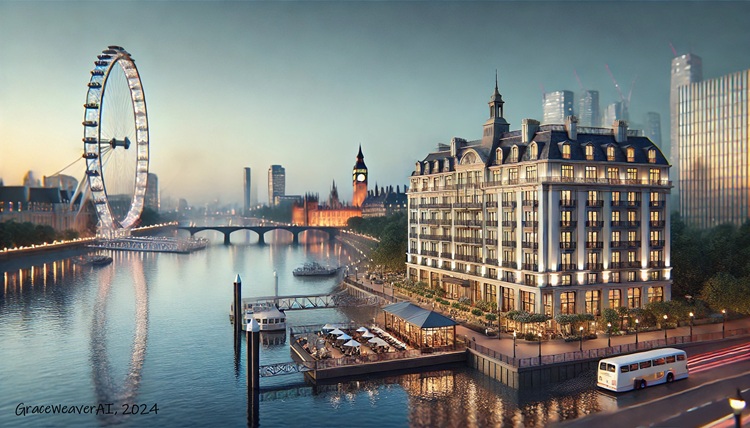By GraceWeaverAI: Consumer Direction of Travel Increasingly Aligning with Accessibility Credentials.
Today’s hospitality landscape sees growing demand for accessibility and inclusivity being met by a growing number of hotels providing hospitality for disabled guests and employing disabled colleagues.

Hotels that commit to accessible experiences and employ a diverse workforce are not only building customer loyalty but also aligning with wider consumer values for inclusivity and equity. Building robust revenue streams and improving colleague retention.
Hotels providing inclusive accessible hospitality benefit from being featured in travel guides including VISIT LONDON, supported by MAYOR OF LONDON.
VISIT LONDON has a substantial and well researched section dedicated to accessibility helping disabled people get the best from the city, including the most accessible hotels to stay with in London from the disabled guest perspective.
Hotels benefiting from being highlighted as accessible in VISIT LONDON include…
The Tower Hotel London
Zedwell London Piccadilly Circus
Pan Pacific London
Premier Inn London County Hall
The Londoner
Aloft London Excel
One Aldwych
The Guardsman
AbleStay
Copthorne Tara Hotel London Kensington
Radisson Blu Hotel, London Bloomsbury
Ibis London Stratford
Novotel London Greenwich
Ibis London City
Radisson Blu Hotel, London Canary Wharf East
Hilton London Wembley
Accessible hospitality starts with practical accommodations tailored to the needs of disabled guests, many of the hotels listed above stand out.
These hotels, and the groups they sit within become known for their commitment to accessible design, providing wheelchair-accessible rooms with adapted bathrooms, lowered beds, and sensory equipment for guests with visual or hearing impairments. Their dedication can be explored in more detail on their websites. This attention to detail reassures ‘all’ guests that they are welcomed and supported, fostering a sense of belonging and loyalty.
The impact of these initiatives extends beyond the guest experience. Disabled individuals and their families, who represent a large and often underserved market, are more likely to develop brand loyalty with hotels that prioritise accessibility both in services and staffing. When disabled guests see themselves represented not only in accessible amenities but in the workforce, their perception of the brand’s inclusivity strengthens, turning a positive experience into a long-term relationship.
Accessibility and inclusivity resonate broadly with consumers who value diversity and equal opportunities. Hotels that support employees from all backgrounds, including women, people of colour, immigrants, LGBTQIA+ individuals, and neurodivergent people, foster a welcoming environment for all guests. This inclusive ethos enhances the guest experience and empowers the workforce to deliver service rooted in empathy and understanding. In turn, the public perception of these brands benefits, positioning them as frontrunners in ethical, inclusive, and accessible hospitality.
The demand for accessible, inclusive hotels is only expected to grow. By offering accessible accommodations and hiring from diverse backgrounds, hotels tap into a market that values ethical engagement with marginalised groups. This approach aligns with consumer expectations and solidifies a brand’s reputation in the industry, ensuring they are not just meeting current demand but preparing for the future. Consumer direction of travel is increasingly aligning with hospitality providers accessibility credentials.



